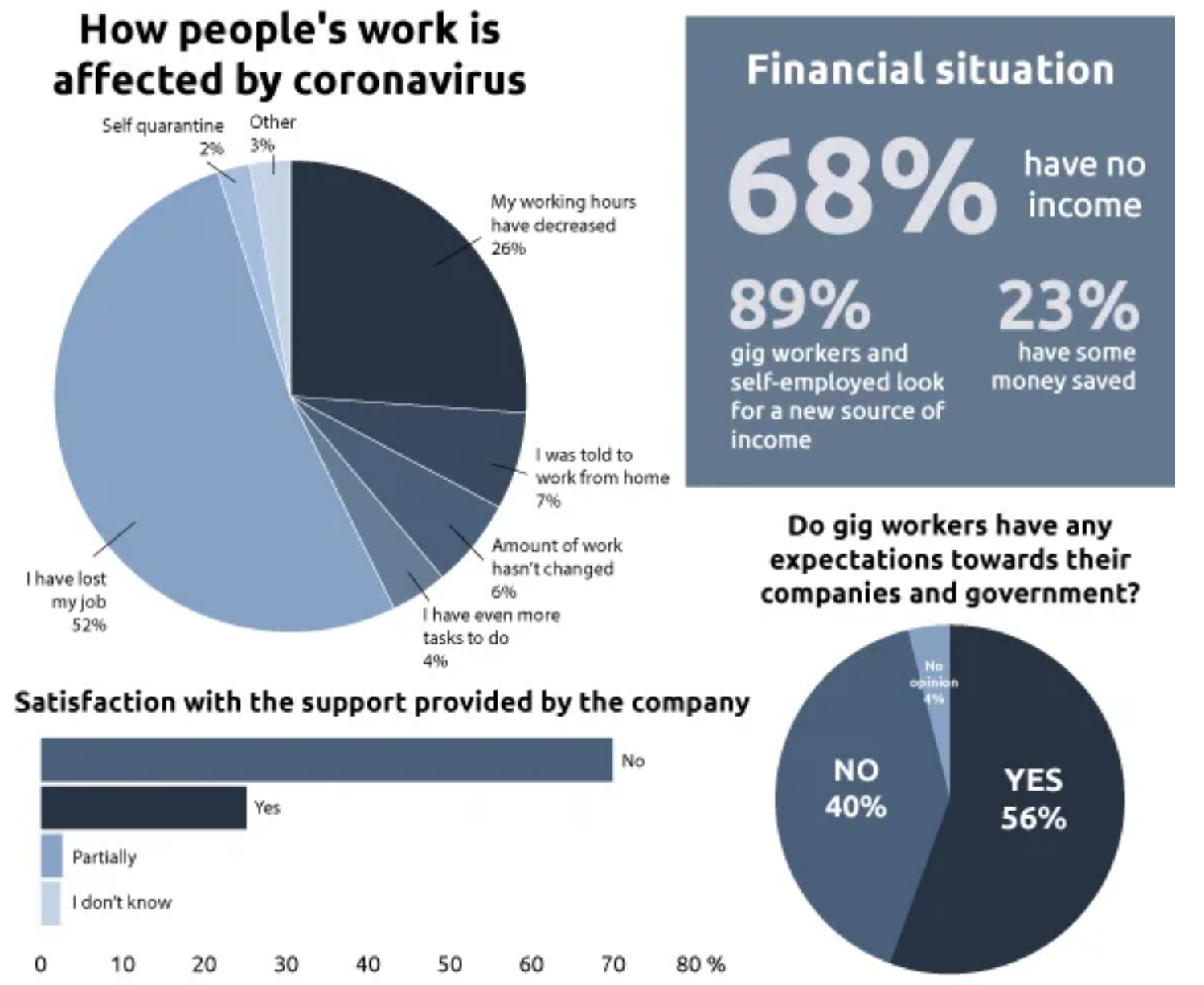Gig workers among the hardest hit by coronavirus pandemic

Gig workers feel torn between protecting their safety and a need to continue earning. Image: REUTERS/Joe Penney
- Gig workers are quitting jobs due to a fall in demand and safety concerns.
- The majority of gig workers now have no income due to COVID-19.
- Almost 70% of gig workers were not satisfied with the support provided by the company they work for.
Gig workers are among the hardest hit economically by the coronavirus pandemic, according to a new survey. AppJobs – an online platform to compare app-based jobs around the world – said many have had to quit their gig jobs due to a decrease in demand, as well as their own safety concerns.
Almost 70% of gig workers said they now have no income, and only 23% have some money saved. Among gig workers and the self-employed, some 89% are now looking for a new source of income. Over half of gig workers said they had lost their jobs; more than a quarter had seen their hours cut.
The coronavirus crisis has shone a spotlight on many of the long-term struggles faced by gig workers. While the gig economy offers flexibility, workers have limited access to unemployment benefits, health insurance or sick leave.
Almost 70% of the workers surveyed said they were not satisfied with the support they had received from their companies during the pandemic. Over half expected some help either from the government or the companies they work for.
AppJobs surveyed 1,400 gig workers – which include independent contractors, workers for online platforms, contract, on-call and temporary workers – to find out how COVID-19 had affected them.
The AppJobs Institute, which conducts research on the gig economy, said the coronavirus pandemic has caused an increase in global demand for jobs such as delivery, online surveys and market research. It said: “This increase came at the same time that the pandemic demanded more people to self-isolate.” Last month, Instacart, a San Francisco-based grocery delivery company, said it was adding 300,000 gig workers to meet their growing demand for new deliveries.
Since social distancing was imposed in many countries in the first week of March, there was a 36% drop in demand for jobs such as house-sitting, babysitting and cleaning.
What is the World Economic Forum doing about the coronavirus outbreak?
Don't miss any update on this topic
Create a free account and access your personalized content collection with our latest publications and analyses.
License and Republishing
World Economic Forum articles may be republished in accordance with the Creative Commons Attribution-NonCommercial-NoDerivatives 4.0 International Public License, and in accordance with our Terms of Use.
The views expressed in this article are those of the author alone and not the World Economic Forum.
Stay up to date:
SDG 08: Decent Work and Economic Growth
Forum Stories newsletter
Bringing you weekly curated insights and analysis on the global issues that matter.
More on Health and Healthcare SystemsSee all
Mansoor Al Mansoori and Noura Al Ghaithi
November 14, 2025









